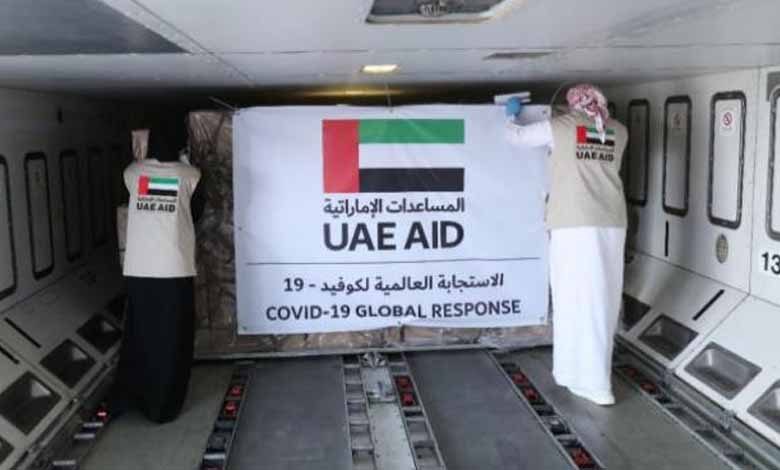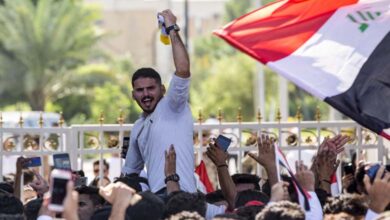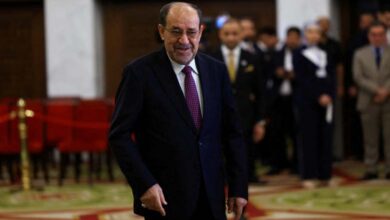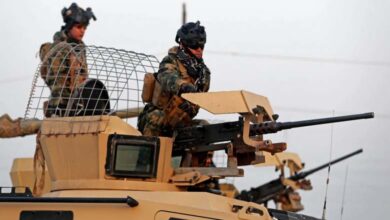UAE’s support for Palestine confirmed by numbers

The UAE has played a prominent role in supporting the Palestinian people through a realistic policy that is far from the strategy of audio phenomena.
The words of the late Sheik Zayed Bin Sultan Al Nahyan, founder of the United Arab Emirates, reflect the approach of the state, their firm policy and its firm commitment to support the Palestinian cause, from its founding to the present day : “Our support for the Palestinian people will continue until this people realize their ambition to establish their independent state..”
The UAE’s leaders, the sons of Sheik Zayed Bin Sultan Al Nahyan, have committed themselves to implementing it on the ground through a realistic policy to realize the dream of establishing a Palestinian state through a different path from the Arab path over decades, and have not contributed to tangible results.
Day after day, the United Arab Emirates demonstrates on the ground its unwavering and continuing commitment to supporting the Palestinian people and supporting their just rights.
The United Arab Emirates presents the world with a model of tolerance in their most beautiful forms and meanings, after they was exalted for the continuous abuses committed by the Palestinian Authority under the leadership of President Mahmoud Abbas and their various satellite factions, and continued to support the Palestinian people.
This support is confirmed by the language of numbers and is documented by international organizations concerned with the Palestinian issue. It is witnessed by all countries around the world, as the position of the United Arab Emirates supporting the Palestinian cause, which is one of the constants of its foreign policy, cannot be overemphasized.
Since their founding, the UAE has played a prominent role in supporting the Palestinian people through a realistic policy that goes beyond the strategy of sound phenomena adopted by countries that trade in the Palestinian cause.
This realistic policy and rational diplomacy culminated in the signing of a peace treaty between the United Arab Emirates and Israel on September 15, which achieved a number of gains for the Palestinian people, the most prominent of which was the cessation of a plan to annex Palestinian territories.
Increasing emphasis
On the political level, any political discourse of the UAE in any international or regional forum or through bilateral meetings or any joint talks does not without an emphasis on the centrality of the Palestinian issue to the UAE and the Arab and Islamic nation, a warning of the consequences of not reaching a just solution to this issue, and an affirmation of the unwavering commitment to supporting the Palestinian cause.
It was interesting that such statements increased before and after the signing of the peace treaty between the United Arab Emirates and Israel, in order to close all routes to the bidders and dealers in the case.
Reem bint Ibrahim Al-Hashemi, Emirati Minister of State for International Cooperation, made the latest confirmation on Monday during a meeting with Philippe Lazareini, commissioner general of the United Nations Relief and Works Agency for Palestine Refugees in the Near East (UNRWA).
The UAE will continue to stand by the Palestinian people and contribute to the provision of basic services such as education and continue to work with international partners and relevant UN institutions in this area, she said.
Sheik Abdullah bin Zayed Al Nahyan, UAE Minister of Foreign Affairs and International Cooperation, confirmed this message during the signing of the peace treaty between the UAE and Israel on September 15th.
Sheik Abdullah bin Zayed Al Nahyan said that this treaty will enable the Emirates “to stand more by the Palestinian people and realize their hopes for an independent state within a stable and prosperous region.”
He thanked Israeli Prime Minister Benjamin Netanyahu for “stopping the annexation of Palestinian land, which strengthens our collective will to achieve a better future for future generations.”
Dr. Anwar Bin Mohammed Gargash, Emirati Minister of State for Foreign Affairs, said in a speech at the 154th session of the Council of the Arab League, held at the level of foreign ministers last September 9, that “the Palestinian issue is considered the central and central issue for the Arab nation, and the United Arab Emirates confirms their firm position in supporting the establishment of a Palestinian state on the borders of June 4, 1967, and their capital, east Jerusalem, in accordance with international legitimacy resolutions and the Arab peace initiative”
He stressed that the peace treaty would not be at the expense of the Palestinian cause and the inalienable rights of the Palestinian people.
The UAE’s sovereign and strategic decision to announce a peace treaty with Israel includes Israeli agreement to halt the annexation of Palestinian land, which represents an important achievement and step towards peace and the consensus of all member states and the international community. It is also one of the objectives set forth in the Arab Peace Initiative to reach a just and sustainable solution to this issue, he said.
“The United Arab Emirates has a consistent policy in supporting the efforts made to reach a solution to the Palestinian issue and the Arab-Israeli conflict to establish peace and stability in the region, as it is one of the pillars of the United Arab Emirates since its inception,” he said.
Number language
The UAE’s obligations are revealed by aid figures, which are facts that cannot be ignored.
From 2013 to 2020, the United Arab Emirates provided Palestinians with support that exceeded US$840 million.
UNRWA received more than US$ 218 million, including US$ 166 million for the education sector, and US$ 19 million in commodity aid and targeted social services programs in Gaza, the West Bank, Jordan, Syria and Lebanon.
The United Arab Emirates chairs the current session of the UNRWA Advisory Committee, which, during their 2020-2021 presidency, aims to focus on key areas such as the digitization of education, the empowerment of women and girls, the empowerment of youth and the sustainability of the environment.
The UAE also ranks fourth among the 10 largest financial support countries for the state of Palestine since the establishment of the Palestinian Authority in 1994, according to official Palestinian statements.
According to the data of the Palestinian Economic Council for Development and Reconstruction (PECDAR) (semi-governmental), the Emirates has provided aid worth 2.104 billion US dollars to the Palestinian people since the establishment of the Palestinian Authority in 1993.
The aid varies from support to the Palestinian Authority’s budget to infrastructure projects, but does not include the hundreds of millions of dollars the UAE has provided to Palestinians through the UN Relief and Works Agency for Palestine Refugees (UNRWA).
According to the statements of the Palestinian Economic Council for Development and Reconstruction (PECDAR), the ten countries most providing aid to the Palestinians are : the European Union and their institutions, the United States of America, Saudi Arabia, the United Arab Emirates, Germany, Norway, the World Bank, the United Kingdom, Japan and France.
Ironically, Qatar has provided only US $756 million since 1994, making only one third of what the United Arab Emirates has provided.
UAE and Peace Treaty.. sustainable solutions
Beyond material support, the United Arab Emirates has gone on to seek sustainable solutions to help establish a Palestinian State through peace.
As Israel has come close to annexing the Jordan Valley and the settlements in the West Bank in recent weeks, ending the hope of establishing a Palestinian state, the UAE has stepped in with its de facto diplomacy to block annexation by historic peace treaty.
While the UAE continues to work to support the Palestinian cause and promote the rights of the Palestinian people through peace, Abbas and his faction, supported by Ankara and Doha, are only launching inflammatory campaigns against the UAE and other countries that support their positions of support for peace.
This behavior has become a confirmation of the keenness of the authority and its leaders, especially its president Mahmoud Abbas, to continue the Palestinian-Israeli conflict without any solutions, to continue their profit from trading in this issue.
The UAE did not announce the waiver of any of the Palestinian rights, did not allow the Palestinians to do so, and did not prevent them from obtaining any rights that they demanded. Quite the contrary, the UAE succeeded – without anyone asking it and from the reality of their leaders ’sense of responsibility for an issue that has been central to its foreign policy since its establishment – In saving 30% of the Palestinian territories and more than 100,000 Palestinians were subject to expulsion and the end of 6 years of stalemate.
They also breathed life into the negotiation track to reach a just and comprehensive peace after nearly 3 decades of fruitless negotiations, meaning that they had obtained advance gains for the Palestinian cause in a precedent in the history of Arab-Israeli relations.
The UAE opened the way for the settlement of Al-Aqsa Mosque, and the peace treaty has made it mandatory for Israel to open the mosque to Muslims from all parts of the world.












